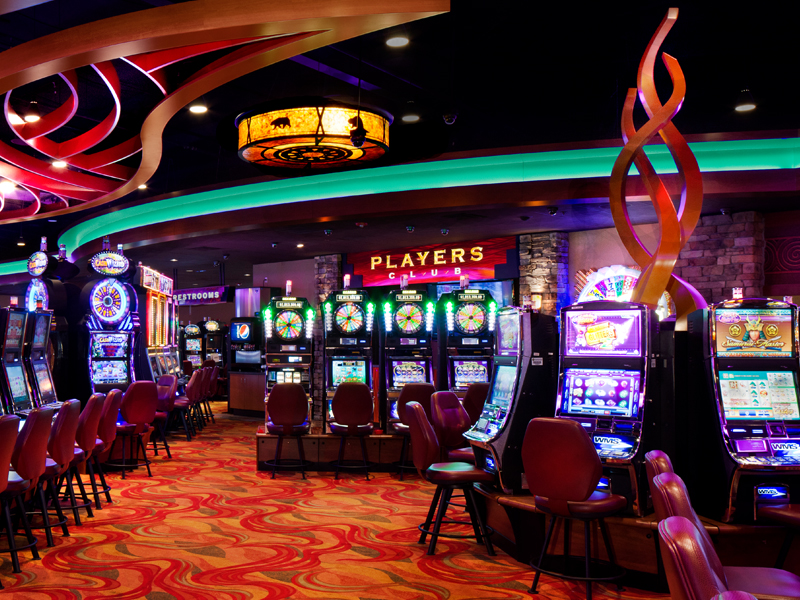Casino games have long been a captivating source of amusement, drawing countless of players from diverse cultures around the globe. From the opulent casinos of Vegas to the busy gambling halls of Macau, these games serve as a link that connects people across various backgrounds. The allure of luck, tactics, and uncertainty entices not only those seeking to win money but also those looking for a feeling of belonging.
The significance of casino games extends far beyond the gaming floor. They often embody the social norms and beliefs of the cultures in which they prosper. F8BET COM Games such as seven-card stud, 21, and roulette have embedded themselves into the mosaic of mainstream culture, influencing everything from cinema to fashion. As we explore this fascinating intersection of chance and culture, we can comprehend better how casino games shape and are affected by the world around us.
Historical Progression of Gambling Activities
The beginnings of casino activities can be followed back to ancient civilizations, where gambling in various forms was widely engaged in. In Ancient China, around two thousand three hundred years before Christ, a form of lottery known as Keno was popular, while in old Rome, soldiers would often gamble on the consequences of their matches. The concept of using randomness for fun and profit evolved over the centuries, leading to the creation of more structured activities. By the end of the Middle Ages, gambling houses initiated to surface in European nations, notably in Italy, which brought forth early versions of well-liked activities still enjoyed today.
As betting increased fame in Europe, the 17th and 18th centuries saw the rise of gaming houses as dedicated venues for gambling. The initial official casino, the Ridotto, was established in the Venetian city in sixteen thirty-eight, providing activities like Baccarat and the game Faro. https://f8betlv.com/ This era marked a significant pivoting point, as casinos started to welcome not just the high society but also the burgeoning middle-tier society. The refinement of activities grew, leading to the development of new guidelines and versions that enriched the experience of players.

In the 19th century, the industrial revolution and changes in societal standards also transformed the landscape of gambling games. The launch of the game of roulette and new slot machines drew a larger audience, and casinos became seen as legitimate forms of recreation. This era witnessed the worldwide proliferation of gaming, as gambling houses expanded from the continent to the Western Hemisphere, culminating in the creation of the famous Las Vegas Boulevard in the 20th century. The development of casino games has persisted into the current era, including new technologies and online sites, allowing them open to a global market.
### Cultural Significance in Various Communities
Gambling games have profound cultural and social importance within a multitude of cultures around the world. Places like Las Vegas, the very core of the urban landscape is woven around casinos, where playing is not just a pastime but a fundamental aspect of leisure and social interaction. The bright lights and lively atmosphere attract a vast audience, showcasing how games of chance can influence local economical structures and cultural uniqueness. This environment transforms the notion of recreation into an immersive experience that shapes style, music, and even cinema.
In contrast, some societies treat betting with greater care, seeing it through the lens of ethical beliefs and customs. For instance, in many Asian communities, games like Mahjongg and Pai Gow Poker are rich with history and have significant social relevance. These games are often played during get-togethers and festivities, fostering community bonds and solidifying family ties. The act of playing these games goes beyond mere entertainment, reflecting values such as deference to seniors and the importance of collective enjoyment.
At the same time, in European countries such as Monte Carlo and the Italian Peninsula, casino games serve as symbols of wealth and refinement. The stylish atmosphere of these establishments attracts both tourists and native inhabitants, maintaining a sense of status and elitism. The art of the game of poker and the tactical components of games like baccarat are celebrated, shaping social dynamics and cultivating an attraction that enthralls a varied audience. This emphasizes how gambling can simultaneously echo and influence cultural perspectives towards risk, gain, and community interaction.
Financial Influence and Tourism
Casino games play a crucial role in the economic landscape of many regions, particularly those that depend significantly on visitor traffic. The revenue generated from gambling establishments fuels local economies, creating jobs not only within the casinos themselves but also in related sectors such as hospitality, dining, and recreation. This surge of tourists, drawn by the attraction of games and the overall casino experience, stimulates expenditure across multiple businesses, contributing to the economic health of the area.
The existence of casinos often leads to the construction of facilities, including lodging, public transit, and leisure amenities. These developments are essential in improving the overall visitor satisfaction, making locations more appealing to visitors. Additionally, many casinos contribute in local communities through support of activities and charitable activities, further integrating themselves into the social fabric of the locality. Such investment not only supports economic growth but also fosters a positive reputation of the gambling sector.
Furthermore, the worldwide appeal of casino games drives competitive tourism, with locations vying to attract players from across the globe. Iconic destinations like Las Vegas and Macau have become identifiable with casino culture, drawing millions annually. This advantage encourages creativity and variety within the gambling sector, influencing developments in entertainment and accommodation that resonate beyond their borders. The ripple effects of this tourism extend far, impacting local financial health and cultural interactions on a global scale.